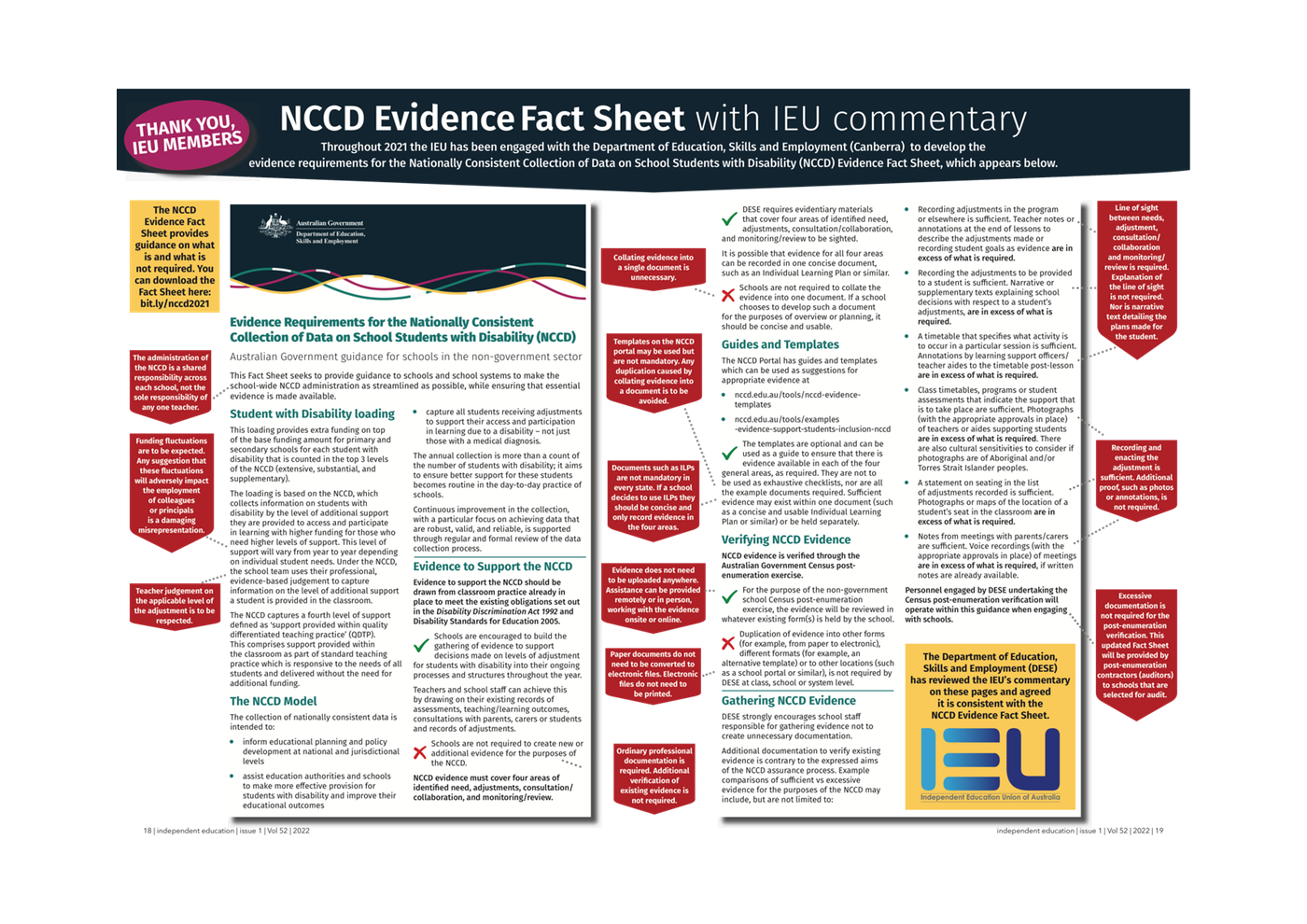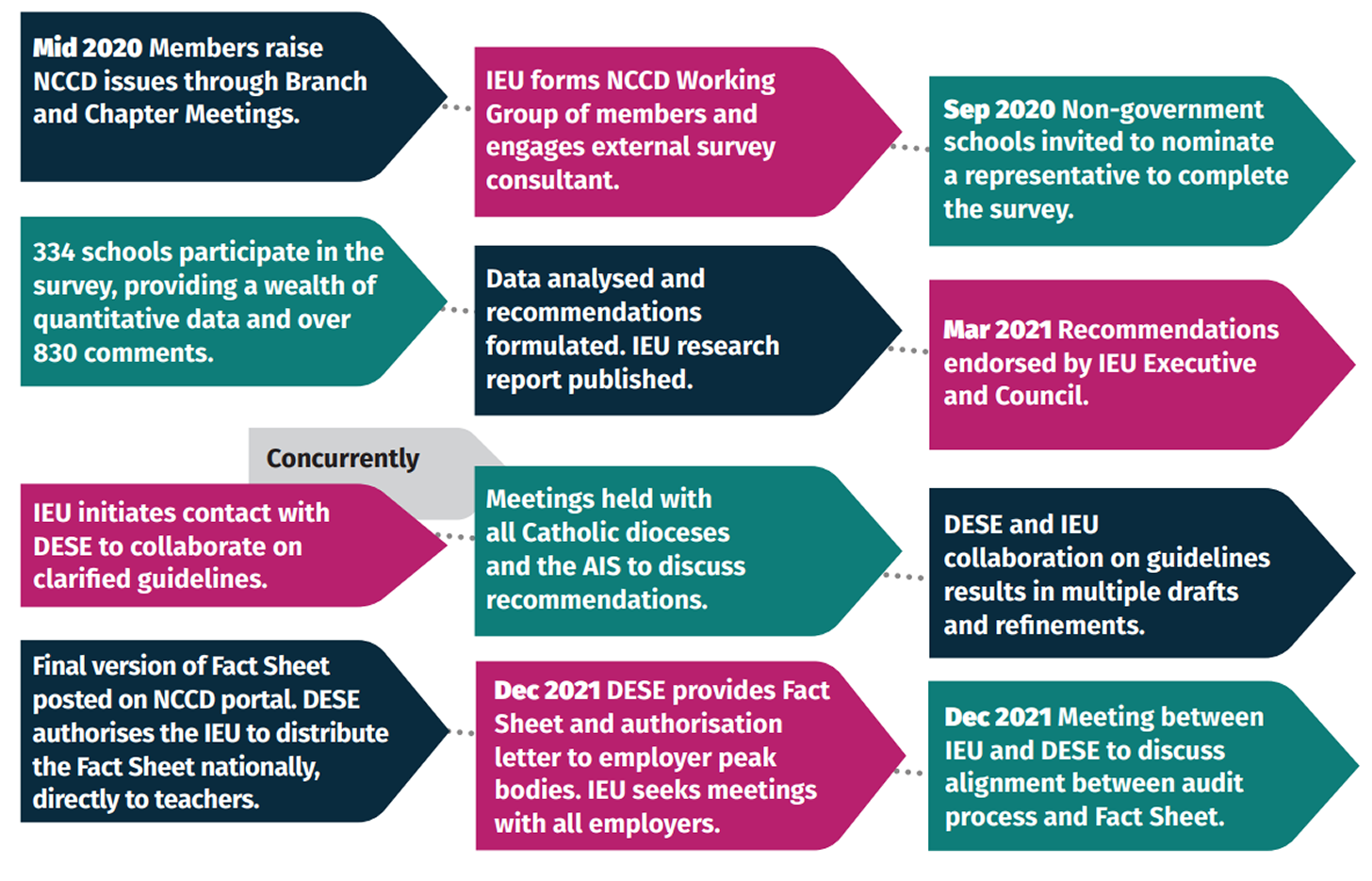IEU Education Coordinator Veronica Yewdall explains a year-long process to reduce workloads – and the positive outcome.
In response to member concerns about the process of the Nationally Consistent Collection of Data (NCCD) on school students with disability, the IEU conducted a survey in late 2020 to establish the breadth and severity of workload and wellbeing concerns.
Our research in 334 schools showed there was widespread respect for the NCCD and its aims. However, it was equally clear that teachers were struggling with unsustainable evidence collection expectations at school and system level, as well as various complications arising from the post-enumeration verification process.
The IEU reached out to the Federal Department of Education, Skills and Employment (DESE) in Canberra in March 2021, with the aim of finding workable solutions.
In this special four-page liftout, you’ll find the result of six months of meetings between DESE and the IEU, culminating in a substantial reduction in workload, as explained in the Fact Sheet.
This Fact Sheet contains key clarifications of the NCCD guidelines, providing teachers with mandated information that challenges the current duplication and layering of evidence. You will also find:
- a timeline of the IEU’s engagement on this issue
- the joint Fact Sheet developed through collaboration between DESE and the IEU
- IEU commentary that clarifies the practical application of the Fact Sheet in schools
- a thank you to our NCCD Working Group
- next steps for the IEU and next steps for members.
The NCCD Evidence Fact Sheet provides guidance on what is and what is not required. You can download the Fact Sheet here:









































































































































